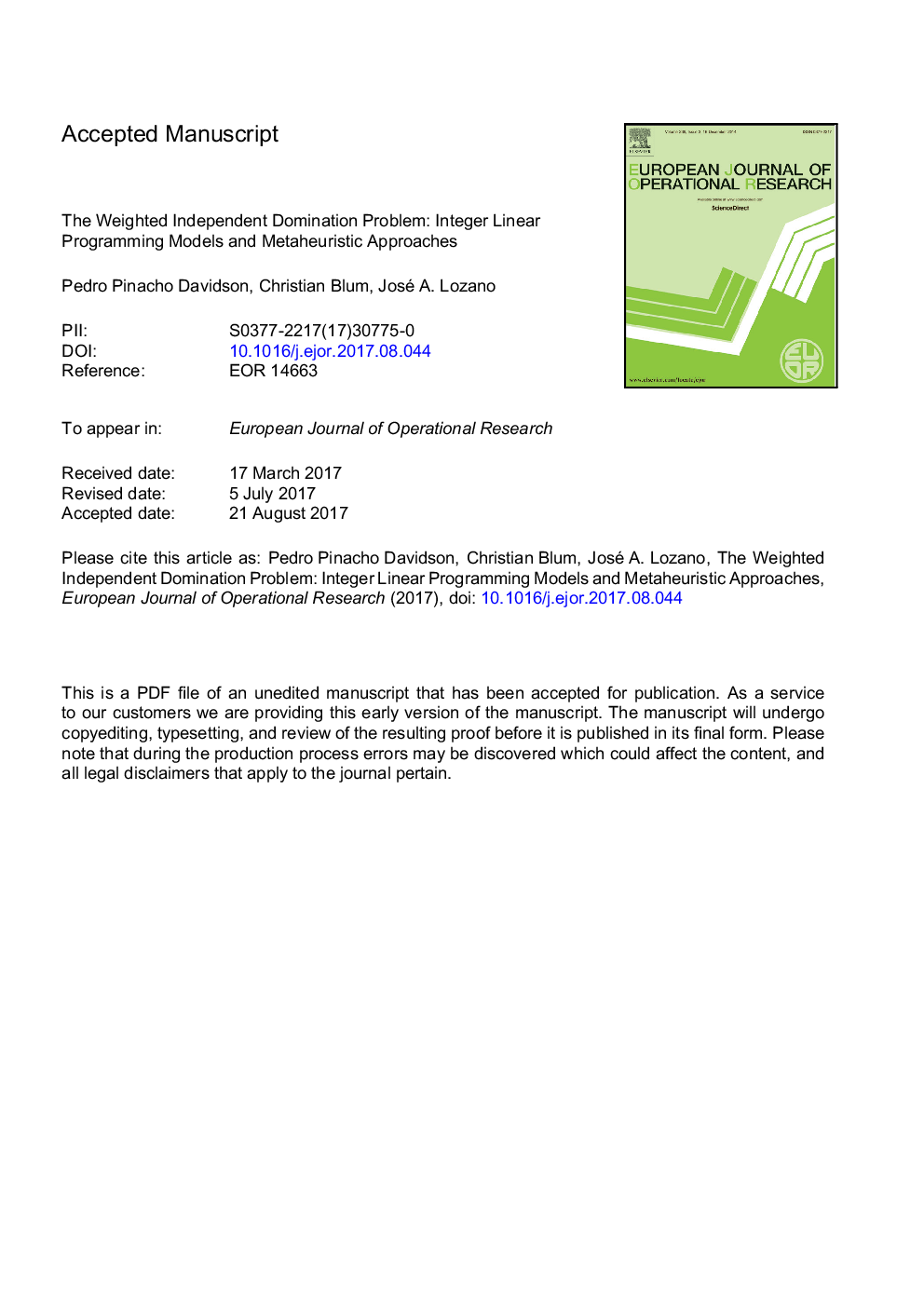| Article ID | Journal | Published Year | Pages | File Type |
|---|---|---|---|---|
| 6895215 | European Journal of Operational Research | 2018 | 26 Pages |
Abstract
This work deals with the so-called weighted independent domination problem, which is an NP-hard combinatorial optimization problem in graphs. In contrast to previous work, this paper considers the problem from a non-theoretical perspective. The first contribution consists in the development of three integer linear programming models. Second, two greedy heuristics are proposed. Finally, the last contribution is a population-based iterated greedy metaheuristic which is applied in two different ways: (1) the metaheuristic is applied directly to each problem instance, and (2) the metaheuristic is applied at each iteration of a higher-level framework - known as construct, merge, solve and adapt - to sub-instances of the tackled problem instances. The results of the considered algorithmic approaches show that integer linear programming approaches can only compete with the developed metaheuristics in the context of graphs with up to 100 nodes. When larger graphs are concerned, the application of the populated-based iterated greedy algorithm within the higher-level framework works generally best. The experimental evaluation considers graphs of different types, sizes, densities, and ways of generating the node and edge weights.
Related Topics
Physical Sciences and Engineering
Computer Science
Computer Science (General)
Authors
Pedro Pinacho Davidson, Christian Blum, Jose A. Lozano,
